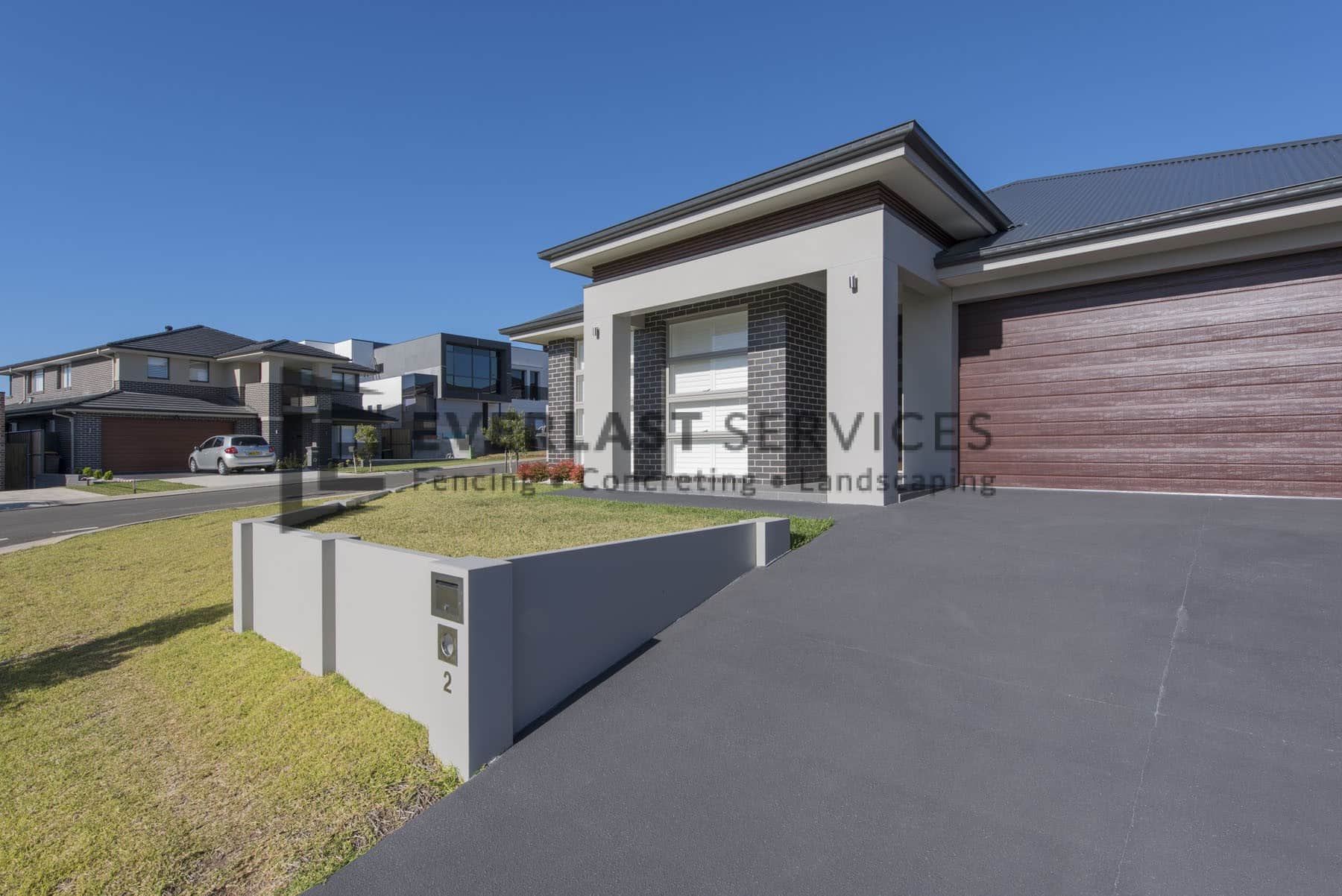One of the most crucial decisions to make when designing a driveway is between materials. Tried and tested, bitumen and concrete have been reliable options for homeowners across the country for decades now.
They’re quite different too in terms of their material composition. Bitumen, commonly known as Asphalt around the world, is a petroleum product which is refined down to a viscous liquid that binds aggregates together to create roads.
Concrete, on the other hand, is the name given to a composition of fine and coarse aggregates with cement, commonly used in large scale building projects due to its durability.
These are the most common options used in driveway surfaces here in Australia, and both come with their own specific advantages and disadvantages. Beyond the initial financial investment, these materials vary in terms of long term maintenance and repair costs, and even in aesthetic qualities.
With that said, here’s an overview of some things to consider when setting out to build your driveway.
Cost
Bitumen has a generally lower upfront cost. Simply put, this is because the amount of materials (aggregates in particular) required to create a bitumen road is less than concrete. Bitumen roads only require the petroleum product itself and a smaller range of aggregates.
Concrete will therefore cost slightly more to create, but recoups this cost in terms of savings on maintenance in the long run.
It’s important to note that bitumen is a petroleum by-product, and prices can fluctuate depending on the global price for a barrel of oil. And although it’s a long way off, oil won’t be around forever; it might get surprisingly expensive to repair a bitumen road further down the line.
Readiness
Although this is important to note, it’s probably best regardless of chosen material that you give your driveway at least a couple days to a week to set properly. Bitumen roads will be ready within a day or less in most cases, but concrete takes a couple days to a week to reach full strength.
Maintenance
Maintenance costs are slightly more complicated. Bitumen is much more prone to becoming damaged over time. Repairing damage is slightly easier to finance due to the lower price of the bitumen itself, and requires a simple re-layering.
Concrete is much more sturdy, and driveways can last multiple decades before even seeing any form of damage. However, damage to the integrity of the concrete can compromise the rest of the driveway. Concrete always needs a solid foundation to be rebuilt on, and so repairs for concrete can be more comprehensive.
Weather
These materials react in different ways to harsher weather conditions. Bitumen keeps heat much better than concrete, meaning that it’s prone to expanding when hot and shrinking when cold. This gives it a bit of flexibility to tolerate changes in weather patterns, and usually reverts back to its old form.
Concrete stays rigid throughout its entire lifespan. This does mean that in extreme conditions, where weather changes from hot to cold often, it’s at an increased risk of sustaining damage. Basically, concrete is a porous material that takes in water when warmer, and then expands when frozen. This stresses the material, and can lead to cracks, though with competent concreters, this can be avoided.
Sustainability
Environmentally, neither material is exceptionally bad. However, they both use a lot of energy to produce the raw materials, and both emit large amounts of greenhouse gases from production.
Concrete’s more intensive repair process means that repairs are a bit more environmentally costly. However, concrete will always hold for longer than the equivalent bitumen driveway, and so this isn’t too big a concern.
Regardless, producing as smooth a driveway as possible will help your fuel economy, and reduce your carbon footprint. Concrete driveways can be smoothed down easier than bitumen can, and can reduce how much you spend on petrol in the meantime.
Aesthetics and Suitability
This is entirely personal preference. Some prefer the classic look of bitumen, but concrete can be can be styled in any number of ways to suit the look of any house. Exposed concrete looks stylish and modern, and has great resistance to the wear and tear associated with driveways. Coloured concrete is another inexpensive option to really complement the architecture of any property.
For peace of mind, concrete is the safer option – its hassle free, straightforward to build, and will last for decades. It’s a reliable option for most homeowners no matter the location, and will save you a fair bit in maintenance along the way.
To learn more how concrete can help you built stunning driveways, contact the experts at Everlast today.
